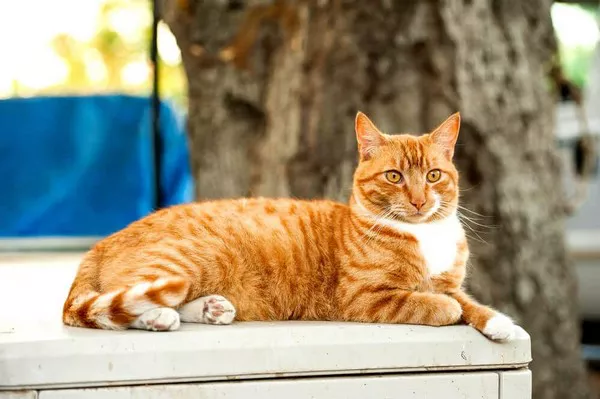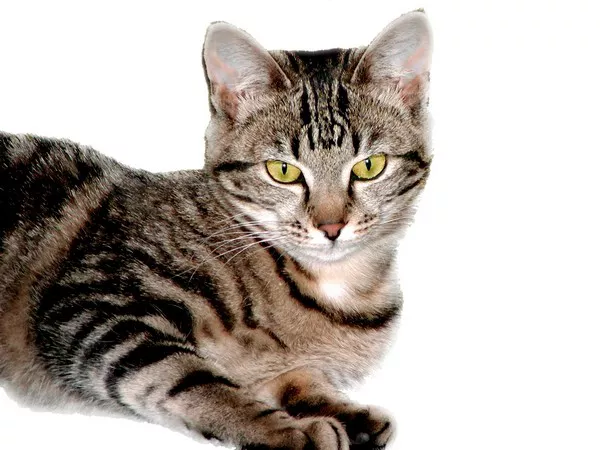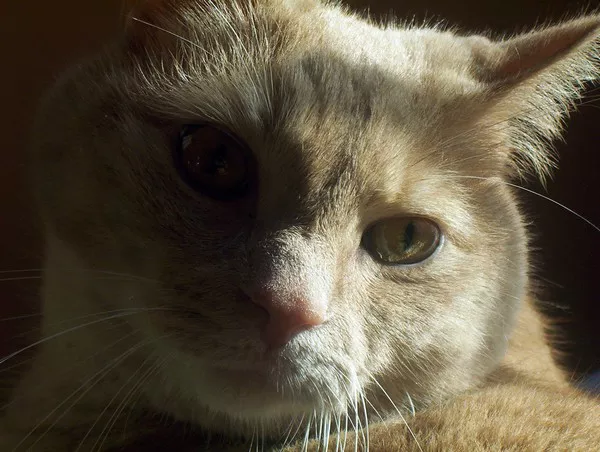Cats, like people, have their unique preferences when it comes to food. While some cats may eagerly devour whatever is placed in front of them, others can be more discerning. These picky eaters present a challenge for cat owners who want to ensure their pets receive the proper nutrition. Understanding why some cats are picky eaters and finding the best cat food for them is essential for their health and well-being.
Cats are notorious for being creatures of habit, and many factors can contribute to their food preferences, from their individual personalities to their sensory experiences and health conditions. The importance of addressing a cat’s picky eating habits cannot be overstated, as it directly impacts their nutritional intake and overall health.
Whether you’re dealing with a cat that is selective about flavors, textures, or feeding times, understanding the underlying causes of picky eating and how to manage it is essential. This article will help guide you through the factors that contribute to a cat’s food preferences, explore some of the best food options for picky eaters, and provide tips for encouraging a healthy cat feeding routine.
Why Are Some Cats Picky Eaters?
Understanding why some cats become picky eaters is key to finding the right food for them. There are several reasons why a cat might turn their nose up at food, and these can range from medical issues to sensory sensitivities.
Sensory Sensitivities: Cats are highly sensitive to taste and smell. They rely heavily on their sense of smell to determine whether food is palatable. If the food doesn’t have an appealing aroma or flavor, your cat might refuse to eat it altogether.
Texture Preferences: Many cats have strong texture preferences. Some may prefer the smoothness of pate-style food, while others might like the crunchiness of dry food. Cats that are used to one texture may reject others, especially if they are suddenly presented with a new one.
Health Issues: Sometimes, picky eating is linked to underlying health issues. Cats with dental problems, gastrointestinal discomfort, or other medical conditions might avoid eating because it causes pain or discomfort. If you suspect a health issue is contributing to your cat’s picky eating, it’s important to consult with a veterinarian.
Previous Experiences: Cats can develop food preferences based on early experiences. If a cat was exposed to a variety of foods during kittenhood or was fed low-quality food, it may develop a preference for specific types of food.
Stress and Anxiety: Like humans, cats can experience stress and anxiety, which can impact their eating habits. Changes in their environment, such as moving to a new home, introducing a new pet, or even a change in routine, can make a cat more finicky about food.
Top Cat Food Recommendations for Picky Cats
When it comes to picky eaters, the key is to find food that is both nutritious and enticing. The best cat food for picky cats will feature high-quality ingredients, appealing textures, and satisfying flavors. Below are some top-rated food options that have earned praise for their ability to please even the most selective feline palates.
1. Smalls Fresh Ground Bird Recipe
Smalls offers fresh, human-grade food that is minimally processed and packed with high-quality ingredients. Their Fresh Ground Bird Recipe is a great choice for picky cats who may be more sensitive to certain ingredients or prefer a fresher taste. This recipe contains high-protein bird meat, which is often more appealing to cats than other protein sources. It’s available in various flavors, allowing owners to experiment with different options to see what their cat likes best.
Smalls’ food is made with human-grade ingredients, ensuring that it meets the highest standards for quality. It’s also free from artificial preservatives, colors, and flavors, making it a healthier option for picky eaters.
2. Weruva Cats in the Kitchen Variety Pack
For cats who prefer variety, Weruva’s Cats in the Kitchen Variety Pack is an excellent option. This affordable pack includes a mix of flavors, such as chicken and tuna, that can help you find the perfect match for your picky cat. The variety pack offers a range of textures, from shredded meat to smooth pâté, which is perfect for testing which one your cat prefers.
Weruva’s products are known for their high-quality, human-grade ingredients, and the Cats in the Kitchen Variety Pack is no exception. The food is high in protein and low in carbohydrates, making it a great option for cats with dietary sensitivities.
3. Fussie Cat Market Fresh Dry Cat Food
For picky cats who prefer dry food, Fussie Cat Market Fresh Dry Cat Food is a top contender. This food contains high-quality protein sources, including chicken, turkey, and salmon, that will appeal to even the pickiest of eaters. It’s also gluten-free, making it a good option for cats with food sensitivities or allergies.
Fussie Cat Market Fresh is made with wholesome ingredients, and the crunchy texture can help promote dental health. It’s also formulated to provide balanced nutrition, with essential vitamins and minerals that support overall health.
4. Applaws Complete Kitten Dry Cat Food
Kittens can be particularly finicky eaters, but Applaws Complete Kitten Dry Cat Food is a great choice for young, picky eaters. This food is made with natural, human-grade ingredients and is packed with high-quality protein. It’s specifically designed to meet the nutritional needs of growing kittens, with added vitamins and minerals that support healthy development.
The food’s texture is crunchy, making it appealing to kittens who enjoy dry food. It’s also highly digestible and free from artificial additives, ensuring that your kitten receives the best possible nutrition while catering to their picky eating habits.
5. Sheba Perfect Portions Aromatic
If your picky cat prefers wet food, Sheba Perfect Portions Aromatic is a great option to consider. This food is known for its highly digestible formula and is made with real meat as the first ingredient. It’s available in single-serve portions, which helps maintain freshness and ensures that your cat gets a fresh, flavorful meal every time.
Sheba’s food is free from artificial colors, preservatives, and flavors, which can be a major turn-off for picky eaters. The smooth, tender texture and rich aroma make it an excellent choice for cats with discerning tastes.
Factors to Consider When Choosing Cat Food
When choosing the best cat food for picky eaters, there are several factors to consider to ensure your cat gets the nutrients they need while satisfying their tastes.
1. Flavor and Texture
Cats are highly sensitive to smell and taste, and many picky eaters prefer certain flavors and textures over others. Some cats are more likely to eat food with strong, enticing aromas, while others may be more drawn to a particular texture. For example, some cats may prefer wet food with a smooth, pâté-style texture, while others prefer dry kibble that’s crunchy. Experimenting with different flavors and textures can help you find what your cat prefers.
2. Nutritional Content
While flavor is important, the nutritional content of the food should always be a top priority. The best cat food for picky cats will provide balanced nutrition to support their overall health, including essential vitamins, minerals, and high-quality protein sources. When selecting food, make sure it meets all of your cat’s dietary requirements.
3. Human-Grade Ingredients
Opt for cat food made with high-quality, human-grade ingredients. These foods tend to be more nutritious and are less likely to contain artificial preservatives, colors, or flavors, which can deter picky cats from eating. Look for foods that feature real meat as the first ingredient and avoid those that use fillers like corn or soy.
4. Variety
Picky cats often need variety to keep their interest in their meals. Offering a selection of different flavors and textures can help keep your cat from getting bored with their food. Variety also allows you to experiment to see what your cat enjoys most.
Tips for Encouraging Picky Eaters
Getting a picky cat to eat can be challenging, but there are several strategies that can help make mealtime more appealing.
1. Enhance Flavor
If your cat is refusing to eat their food, try adding a little extra flavor to make it more enticing. You can add a small amount of chicken broth, tuna water, or a sprinkle of parmesan cheese to wet food to encourage your cat to eat.
2. Consistent Feeding Schedule
Cats are creatures of habit, so establishing a consistent feeding schedule can help them feel more comfortable and secure during mealtime. Try to feed your cat at the same time every day and remove uneaten food after 30 minutes to avoid encouraging grazing.
3. Try Different Textures
Experiment with offering both wet and dry food to see what your cat prefers. Some picky cats may prefer a particular texture, and offering a variety can help ensure they’re getting the nutrition they need.
4. Warm the Food
Warming your cat’s food slightly can enhance its aroma, making it more appealing to picky eaters. Simply microwave the food for a few seconds, but be sure it’s not too hot before offering it to your cat.
5. Consulting a Veterinarian
If your cat’s picky eating persists, it’s important to consult with a veterinarian. A vet can help determine if there is an underlying health issue causing your cat’s reluctance to eat, such as dental problems, gastrointestinal issues, or allergies. A veterinarian can also recommend specialized diets based on your cat’s health needs and dietary requirements, ensuring that your picky eater is getting the nutrition they need.
Conclusion
Dealing with a picky eater can be challenging, but with the right cat feeding strategies, you can ensure that your cat is getting the nutrition they need. Whether you’re trying fresh, human-grade food or experimenting with different textures and flavors, there are plenty of options available for picky cats. By considering factors such as flavor, texture, and nutritional content, and by incorporating strategies like warming food and offering variety, you can help your picky cat develop a healthy and balanced eating routine. If needed, don’t hesitate to seek professional advice from your veterinarian to find the best solutions for your cat’s picky eating habits.
Related Topics



























